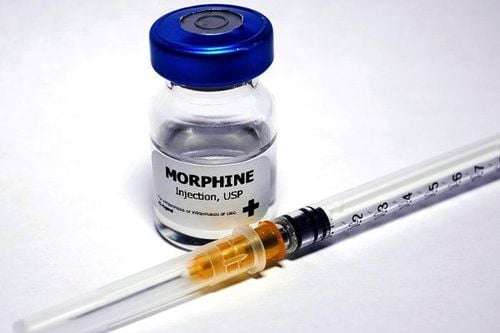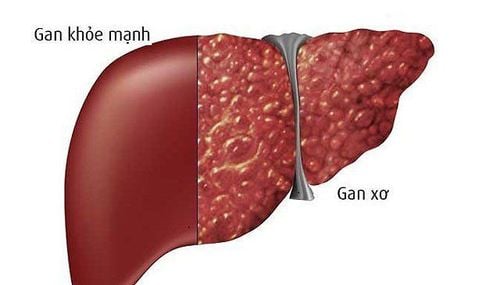This is an automatically translated article.
In fact, there are many oxidizing agents in the body, such as smoke, environmental pollution, tobacco, chemicals, high blood sugar, etc. These factors can cause oxygen imbalance. and lead to a variety of health problems, including weakened immune systems, diabetes, atherosclerosis,...
1. What is oxidation in the body?
Oxidation, also known as free radicals in the body, acts as single or unpaired electron molecules. Normally, molecules consisting of a group of atoms are held together through the action of electron pairs. However, due to certain factors, free radical molecules are missing an electron, leading to a charge imbalance. At this point, the missing molecules will take electrons from other molecules in the cell's proteins, lipids, DNA or RNA.
Electron capture tends to happen in chains, i.e. from one free radical to another. If this situation continues for a long time, it will lead to the risk of oxidative stress or oxidative stress, thereby causing damage to cell membranes and dysfunction of cells in the body.
When the body is healthy and supple, it will be able to control free radicals through the active action of endogenous antioxidants. Once the immune system is weakened or aging, the body will reduce its ability to suppress free radicals. At this time, the oxidative state will be active and attack healthy cells. This is also the reason why you are more susceptible to serious diseases such as diabetes, heart disease or cancer.
2. Spot some oxidizing agents in the body
Normally, oxidation will be formed when exposed to agents from outside the environment or due to natural metabolic processes in the body. Some oxidizing agents, including:
Environmental pollution. Inflammation inside the body. Frequent exposure to UV rays, chemicals or smoke. Exposure to radiation, mold, bacteria. Drinking a lot of alcohol/beer and other stimulants. High blood sugar. Frequent abuse of unsaturated fats. Viral infections lead to oxidative stress. Lack of antioxidants in the body. Excessive intake of zinc, copper, iron and magnesium. Too little or too much oxygen in the body. Tissue damage from long-term strenuous exercise. Oxidative imbalance due to excessive supplementation of artificial antioxidants.
3. What are the effects of oxidative stress on health?
Actually, oxidation is a normal process of the body. If working properly, free radicals themselves will become useful "guards" to help the body fight dangerous pathogens. However, if an oxidative imbalance occurs, free radicals will begin to work excessively and attack fat tissue, DNA and proteins in the body, thereby causing serious damage to cells. cells over time.
The attack of free radicals in the body will make the patient susceptible to the following health problems:
Alzheimer's disease and some other dementias. Autoimmune disease. Heart disease caused by clogged arteries. Cancer. Age-related illness. Cataract disease. Hardening of blood vessels. Diabetes. Atherosclerosis. Hypertension . Aging. Skin and hair changes such as wrinkling, hair loss, or premature graying of hair.
4. How to prevent oxidizing agents in the body?
Here are some measures to help you correct oxidative stress and prevent the health damage associated with it:
4.1. Increase the intake of foods rich in antioxidants One of the top ways to help improve oxidative stress is to add more antioxidants through everyday foods, including:
foods rich in vitamin A such as eggs, milk, red fruits, liver, oranges,... Foods rich in vitamin E such as sunflower, sweet potatoes, sesame oil, peanut oil, avocado, soybean oil,... Rich foods vitamin C such as guava, lemon, orange, vegetables, bell pepper,... Foods rich in omega-3 fatty acids such as walnuts, flaxseeds, herring, salmon, mackerel,... Selenium-rich foods such as cheese, seafood, legumes or cereals,... Foods rich in Zeaxanthin and Lutein like spinach, spinach or broccoli,... Foods rich in EGCG like fruit or green tea. Foods rich in plant phenolic compounds such as raspberries, strawberries, blueberries,... Curcumin-rich foods like turmeric. Foods rich in Coenzyme Q10 such as pork, beef, chicken,... 4.2. Drinking alkaline ionized water According to research, using ionized water containing a lot of alkaline helps the body neutralize free radicals very effectively. Electrolyzed water often contains a large amount of active hydrogen, which helps to disinfect and balance oxidation. In addition, the hydrogen in ionized water has the ability to penetrate deep into the cells, helping to eliminate harmful free radicals and keep active substances beneficial to the body. To improve immune deficiency, oxidation, aging and enhance organ function, you can consider drinking alkaline ionized water every day.
4.3. Building a scientific lifestyle to help reverse oxidative stress You can completely prevent oxidative stress through establishing a healthy lifestyle and living habits, including:
No smoking or minimize exposure to secondhand smoke. Cigarette smoke contains the toxic substance nicotine, which causes harmful free radicals to proliferate rapidly in the body. Therefore, to prevent oxidation, you need to stay away from this agent. Increase exercise, help improve the immune system, prevent cancer and increase the body's natural antioxidant capacity. However, you should only exercise at a moderate intensity, avoiding overtraining that is counterproductive. Sleep at the right time to maintain the balance of the body's activities. You should sleep for 6-8 hours / day to stimulate the body to produce antioxidants and hormones to help balance and regenerate energy. Avoid overeating as this puts the body at high risk of oxidative stress. Instead, you should divide your meals throughout the day by servings that are appropriate for your body weight. Be careful when dealing with chemicals because this is also the cause of oxidative stress. Regularly apply sunscreen with SPF over 30 to prevent the harmful effects of UV rays, and effectively prevent oxidation. Minimize the use of stimulants of any kind. These substances easily cause the body to produce an excess of free radicals, so you should be cautious when using them. Take care of your overall health by seeing your doctor regularly. Through the examination will help you detect abnormalities in the body early, thereby preventing harmful risks to health. You can talk to your doctor about antioxidant supplements.
Please dial HOTLINE for more information or register for an appointment HERE. Download MyVinmec app to make appointments faster and to manage your bookings easily.













